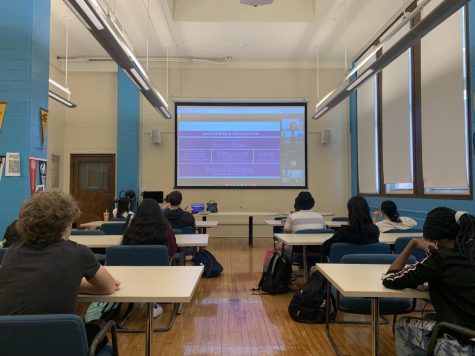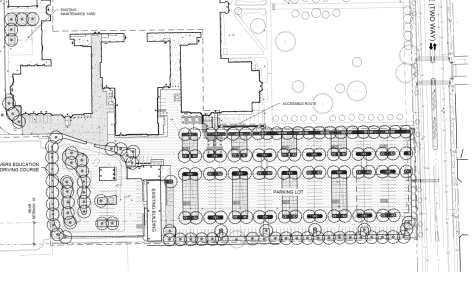Changes come to Advisory period
October 16, 2014
Lane Tech administrators have made a significant change to the Advisory period for the third time in four years.
For the 2014-15 school year, Advisory will be held once a week, on Wednesdays following second period, and will include 20 minutes of instruction on a specific subject such as stress management or the college admissions process.
Last year Advisory, which is also known as Division or Homeroom, was on Wednesdays before first period. According to Assistant Principal Ms. Hart, the decision to make Advisory later in the day was a result of low attendance when it was first thing in the morning.
“What we were finding was that Advisory was our main avenue for getting information out to students, and if students weren’t coming, they were missing that information,” Hart said.
According to Ms. Bantz of the Counseling Department, lesson plans for Advisory will be created by the Counseling Department at least once a month. They have different committees that are broken up by grade level to determine the topics.
Sometimes the whole school will have the same lesson, and other times, the committee will pick individualized topics for each grade level.
“The seniors will be getting a lot of things on college, juniors as well,” Bantz said, “Freshman curriculum will be focused on getting to know Lane, making sure they know how to check their gradebook, that kind of stuff.”
There will not be homework or grades for Advisory, according to Hart.
Student feedback will help shape Advisory lesson plans.
“We are going to put together another needs assessment that will get out to the students so that we make sure that it’s not just what we think students need, it is what they actually do,” Bantz said.
Some of the lessons will relate to broader awareness efforts, such as instruction on suicide prevention in September that coincided with National Suicide Prevention Month. Instructors will supplement lessons with printed handouts and other material.
On Advisory days that are not planned by the counselors, it will be up to the Advisory teachers to make up lesson plans.
“Some of the Advisory teachers are doing their own needs assessment within their classroom to see what the students want to talk about. I think it will likely take on whatever personality that teacher has,” Bantz said.
French teacher Mr.Polley is the Advisory teacher for Division 561. He is focusing on teaching his students how to be mentally and emotionally prepared for college.
“It is a big decision with lots of options, requirements, and procedures. I do my best to talk to all of my students as much as I can about these concerns and I encourage [them] to come to me for help or questions,” Polley said.
According to Polley, talking about issues in Advisory is no new thing for him.
“Having discussions, asking college or even life questions has always been part of our routine. I guess the difference this year is that we need to record our lesson plans with the school formally,” Polley said.
Some students do not support the change, saying that they should keep Advisory as a place to study and take a break.
“I think it should be left as a study hall,” said Anisbeth Torres,Div. 676.
According to Bantz, the instructions on academic strategies are designed to benefit students who are falling behind.
“We want it to be useful, we don’t want it to be wasting people’s time,” Bantz said.
“One of the big things for Advisory is connecting with students and figuring out if the students are getting everything they need,” Hart said.
She thinks this new approach will make a difference to students and hopefully create positive change.
“Our overall goal is to support our students, and if we find that they need more than they are getting, we can connect them with a counselor, or social worker, or psychologist and get them more help, faster, so that they don’t fail classes and struggle,” Hart said.






